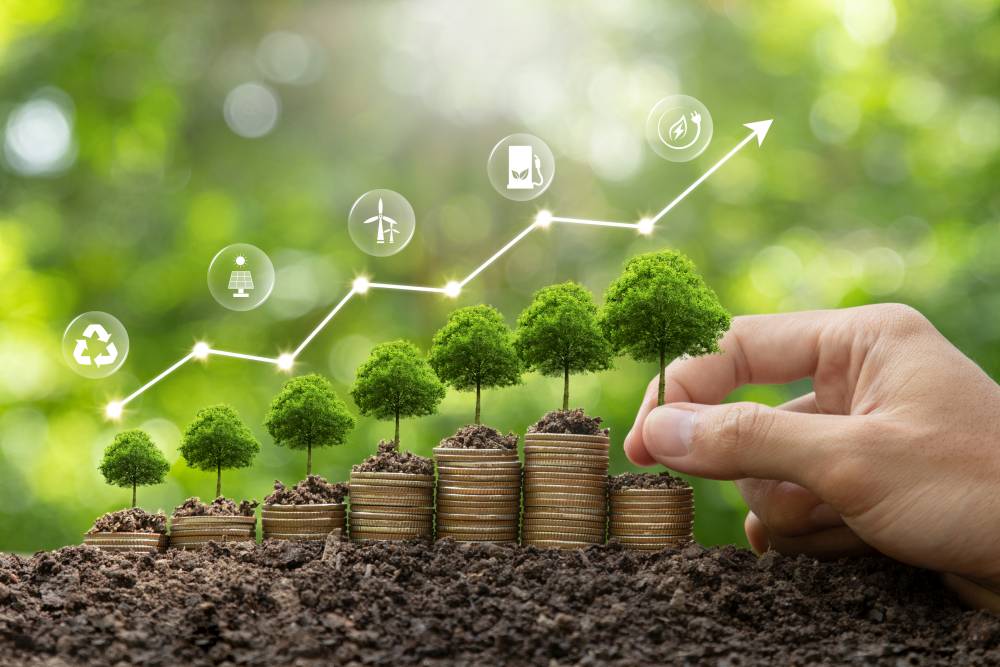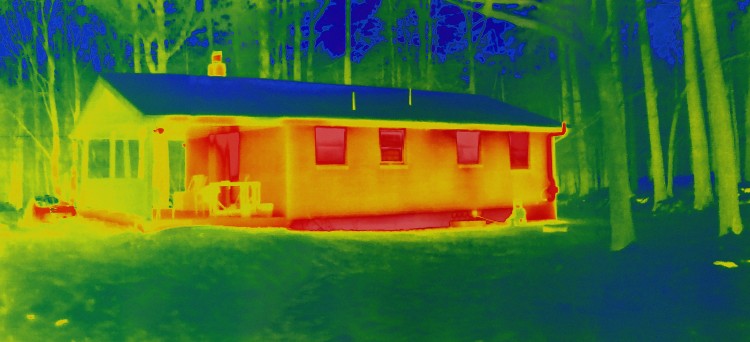Controlling Our Energy Consumption
The intensifying climate crisis and rampant environmental destruction threaten our very existence. Our answer to this must be a rapid reduction in energy consumption and a full-scale embrace of sustainable energy.
2024/01/01

Standing at an Energy Crossroads
In the modern world we occupy, our use and demand for energy is higher than ever before. Energy powers every aspect of our lives, from the lights in our homes to the devices that keep us connected and how we travel. The insatiable demand for ever more energy comes at a significant cost to our environment and future generations, and we stand at a crossroads. One path leads toward a sustainable, clean energy future, while the other continues down a destructive path of unchecked energy consumption and environmental degradation. The time for empty promises and half-measures is over. We must act now to reduce our energy use and transition away from oil and carbon-based energy sources.
Why We Need to Change Our Energy Use
Changing how we change our energy use comes in two forms. The need to reduce energy consumption has never been more urgent and requires increases in more efficient uses. Decreasing wasteful energy use in many cases is simple to invoke and reward us with lower energy bills. Reducing overpopulation is also needed, for increasing numbers of people require increasing amounts of energy and resources.
The other leg of energy use that must be addressed is the burning of fossil fuels, which currently accounts for most global energy production and is the primary driver of global climate change. These fuel types release vast amounts of carbon dioxide and other greenhouse gases into the atmosphere, leading to global warming, rising sea levels, and extreme weather events. Beyond the environmental impact, our overreliance on non-renewable resources has led to geopolitical tensions, economic instability, and a precarious energy future.
Moreover, excessive energy use strains our natural resources, and every kilowatt-hour we save or gallon of gasoline we don’t burn contributes to reducing this strain and protecting the planet’s delicate ecosystems. Reducing energy must be an environmental mandate if we wish to live on a healthy planet. It is also an ethical obligation to ensure a livable planet for future generations.
Shifting Away from Oil and Carbon-Based Energy
Oil, coal, and natural gas fueled industrialization and economic growth for over a century. The modern world we live in would not have come about without them. Now, however, their continued use poses a grave threat to our planet. Transitioning away from oil and carbon-based energy sources is essential to mitigate the worst effects of climate change.
After implementation, renewable energy sources, such as solar, wind, and hydroelectric power, offer sustainable alternatives to meet our energy needs without emitting harmful pollutants. Beyond these, more alternatives, such as nuclear fusion power plants and hydrogen-powered automobiles, are in the works.
Switching to clean energy isn’t just about reducing emissions; it’s also about fostering energy independence and security. By diversifying our energy sources, we reduce our reliance on volatile fossil fuel markets and enhance our resilience to global energy shocks. Investing in renewable energy technologies also creates jobs, stimulates innovation, and positions us at the forefront of a green economy. The shift to clean energy is not just a necessity—it’s an opportunity for economic growth and environmental stewardship.
Energy Use and You
Global and national efforts to reduce energy use and transition to clean energy are critical. One action that each of us can take is to learn about the issues and to vote for individuals who are on board for solving energy issues and who are not bought and paid for by oil interests who want us to “Drill baby, drill.”
Each of us has the power to make a meaningful impact by being more aware of our energy consumption and taking steps to reduce it. In fact, this is where significant changes can immediately occur.
Understanding Your Energy Use
The first step in reducing energy consumption is understanding how and where you use energy. Are you aware of how the energy you consume daily is used and where waste occurs? By becoming more mindful of your energy use, you can identify areas for improvement and make informed decisions about reducing consumption.
One tool that can help you sort out how the energy you pay for is being wasted is an infrared temperature device, which allows you to measure room temperatures quickly and easily. This data can guide you in adjusting your heating and cooling settings and where you need to address energy leaks, saving both energy and money.

iStock.com/Guvendemir
Another useful tool is a thermal camera, which reveals where heat is escaping from your home, such as through poorly insulated walls or drafty windows.

The exterior of a house taken with a heat-sensing camera shows higher amounts of heat emitted in the brighter parts. iStock.com/Alex Potemkin
While these cameras were once prohibitively expensive, they are now available for as little as $60, making them accessible for most households.
Conduct an Energy Audit
Many utility companies offer free energy audits to help homeowners identify areas of energy inefficiency. During an audit, an inspector will examine your home’s insulation, windows, doors, HVAC systems, lighting, appliances, and water heating systems. The inspector may also use an infrared camera to detect heat loss and a blower door test to measure air leakage. This comprehensive analysis will provide you with valuable insights into how you can improve your home’s energy efficiency.
The audit typically includes a review of your current energy consumption patterns and a list of recommendations for improvements. These might include upgrading insulation, sealing leaks, updating HVAC systems, installing energy-efficient lighting, and replacing outdated appliances. The inspector will also provide an economic evaluation, estimating the cost of these upgrades and the potential savings on your energy bills. This cost-benefit analysis is a powerful tool for making informed decisions about energy efficiency.
Practical Steps to Reduce Energy Consumption
Once you understand your energy use and have identified areas for improvement, it’s time to take action. While large-scale upgrades like installing solar panels or replacing old HVAC systems can have significant environmental impacts and ultimately save you money, many smaller, everyday actions can collectively make a big difference.
- Monitor Your Energy Use: Regularly check your energy bills and consider using a smart meter or energy monitoring device to track your consumption. Understanding patterns in your energy use allows you to identify wasteful habits and make changes.
- Adopt Energy-Saving Habits: Simple habits can lead to substantial savings. Turn off lights when leaving a room, unplug devices when they’re not in use, and use energy-efficient appliances. Encourage your household to adopt these practices, creating a culture of energy conservation.
- Optimize Heating and Cooling: Heating and cooling account for a significant portion of household energy use. Adjust your thermostat by a few degrees and use programmable thermostats to reduce energy consumption when you’re not at home. Ensure your home is well-insulated to prevent heat loss in winter and keep cool air in during summer.
- Use Energy-Efficient Lighting: Replace incandescent bulbs with LED or CFL bulbs, which use less energy and last longer. Consider installing dimmer switches and motion sensors to further reduce energy use.
- Be Mindful of Water Heating: Water heating is another major energy consumer. Lower the temperature on your water heater, insulate the heater and pipes, and consider installing a tankless water heater for on-demand heating.
- Reduce Phantom Loads: Many electronics consume energy even when turned off. Use power strips to easily disconnect multiple devices at once or unplug them when not in use to eliminate phantom loads.
Creating Lasting Changes
Individual actions may seem small in the grand scheme of things, but when multiplied across millions of households, they lead to significant energy savings and environmental benefits. By prioritizing energy efficiency and embracing energy-saving habits, we lower our utility bills and contribute to a cleaner, healthier planet.
As stated earlier, it is crucial to support policies and leaders who prioritize clean energy and environmental protection. Voting for leaders who share your commitment to sustainability is essential for driving the systemic change needed to address climate change and environmental degradation. Do we want less than that?
We really are standing at a crossroads. The choices we make today—both as individuals and as a society—will determine the future of our planet. By reducing our energy use, transitioning away from carbon-based fuels, and adopting sustainable practices, we can ensure a livable world for ourselves and future generations. Or not! Together, we can create a sustainable, energy-efficient future and a wonderful planet to live on. The choices are ours to make, and each of us has a role to play in making them.
Related Posts
Sorry, we couldn't find any posts. Please try a different search.
MORE ECO SOLUTIONS
Important Ways to Help Our Earth







